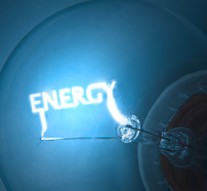
Energy News Digest – 27/04/16
Energy 27 April 2016Once a week, NEU offers a selection of relevant news on issues related to Energy.
The Year For EU to Change Climate Change
By Tommaso Ripani on NEU-Newsletter for the European Union
 In 2009, the United Nations designated 22 April as International Mother Earth Day to reflect upon the interdependence that exists among human beings, other living species and the planet we all inhabit. This year’s celebrations had a special value, since Earth Day coincided with the signing ceremony for the Paris Agreement on Climate Change, which took place at UN Headquarters in New York. The Agreement is now open for signatures, marking the first step toward ensuring that the Agreement enters into legal force as quickly as possible. Adopted by all 196 Parties to the United Nations Framework Convention on Climate Change (UNFCCC) at COP21 in Paris on 12 December 2015, its aim is to limit global temperature rise to well below 2 degrees Celsius and to strive for 1.5 degrees Celsius.
In 2009, the United Nations designated 22 April as International Mother Earth Day to reflect upon the interdependence that exists among human beings, other living species and the planet we all inhabit. This year’s celebrations had a special value, since Earth Day coincided with the signing ceremony for the Paris Agreement on Climate Change, which took place at UN Headquarters in New York. The Agreement is now open for signatures, marking the first step toward ensuring that the Agreement enters into legal force as quickly as possible. Adopted by all 196 Parties to the United Nations Framework Convention on Climate Change (UNFCCC) at COP21 in Paris on 12 December 2015, its aim is to limit global temperature rise to well below 2 degrees Celsius and to strive for 1.5 degrees Celsius.
Read more here.
Greener and Better Jobs for a Sustainable Europe
By NEU-Newsletter for the European Union
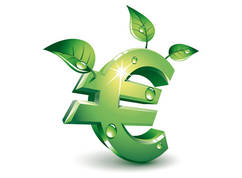 One of the priorities of the European Union (EU) is the creation of a resilient Energy Union with a forward‑looking climate policy that is capable of delivering the adopted 2020 and 2030 climate and energy targets and the EU’s longer-term climate objectives. To achieve this, Europe has to decarbonise its energy supply, integrate the fragmented national energy markets into a smooth functioning and coherent European system, and set up a framework that allows the effective coordination of national efforts. With fossil fuels accounting for roughly three‑quarters of the EU’s gross inland energy consumption (GIEC) in 2013, much remains to be done to achieve the envisaged transformation of the energy sector. The energy sector transformation is not a utopia, but a new economic system which is environmentally and humanly sustainable.
One of the priorities of the European Union (EU) is the creation of a resilient Energy Union with a forward‑looking climate policy that is capable of delivering the adopted 2020 and 2030 climate and energy targets and the EU’s longer-term climate objectives. To achieve this, Europe has to decarbonise its energy supply, integrate the fragmented national energy markets into a smooth functioning and coherent European system, and set up a framework that allows the effective coordination of national efforts. With fossil fuels accounting for roughly three‑quarters of the EU’s gross inland energy consumption (GIEC) in 2013, much remains to be done to achieve the envisaged transformation of the energy sector. The energy sector transformation is not a utopia, but a new economic system which is environmentally and humanly sustainable.
Read more here.
Chernobyl Disaster: What Is the Situation Thirty Years Later?
By NEU-Newsletter for the European Union
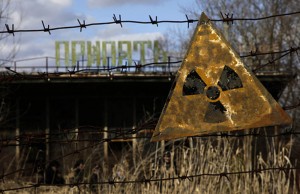 Thirty years ago, the worst nuclear accident in history occurred in Chernobyl, causing devastation in what was then part of the Soviet Union. At 1:23am, on April 26, 1986, reactor four of the Chernobyl Nuclear Power Plant exploded, following an operator error. The fires burned for 10 days, spewing radioactive fallout over tens of thousands of square kilometres. All of a sudden, the Ukrainian, Belarusian and Russian soil and waterways were substantially contaminated by more than 100 radioactive elements. In some areas, the level of radiation was almost 77,000 times higher than the average background norm and 40 times the maximum permissible.
Thirty years ago, the worst nuclear accident in history occurred in Chernobyl, causing devastation in what was then part of the Soviet Union. At 1:23am, on April 26, 1986, reactor four of the Chernobyl Nuclear Power Plant exploded, following an operator error. The fires burned for 10 days, spewing radioactive fallout over tens of thousands of square kilometres. All of a sudden, the Ukrainian, Belarusian and Russian soil and waterways were substantially contaminated by more than 100 radioactive elements. In some areas, the level of radiation was almost 77,000 times higher than the average background norm and 40 times the maximum permissible.
Read more here.
U.S. To Undermine Russia’s Gas Monopoly In Europe
By Nick Cunningham on OilPrice.com
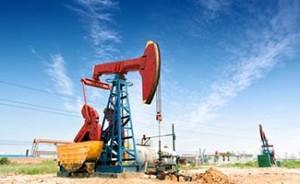 The first US LNG shipment will soon arrive in Europe, marking a new era for energy on the continent. A shipment of American liquefied natural gas should arrive in Portugal within a few days. European LNG demand is rising as domestic natural gas production is falling. Europe’s LNG imports climbed by 16 percent in 2015 compared to a year earlier. US LNG will have hard time competing with cheaper natural gas from Russia for the European market. Russia’s state-owned Gazprom said a few months ago that it wants to push gas exports to Europe to record levels and the company is confident that U.S. LNG won’t steal market share. Not everyone agrees. Earlier this year consulting firm Wood Mackenzie issued an estimate, projecting that 55 percent of U.S. LNG volumes, or about 32 million tonnes per year (mtpa), will be sent to Europe by 2020.
The first US LNG shipment will soon arrive in Europe, marking a new era for energy on the continent. A shipment of American liquefied natural gas should arrive in Portugal within a few days. European LNG demand is rising as domestic natural gas production is falling. Europe’s LNG imports climbed by 16 percent in 2015 compared to a year earlier. US LNG will have hard time competing with cheaper natural gas from Russia for the European market. Russia’s state-owned Gazprom said a few months ago that it wants to push gas exports to Europe to record levels and the company is confident that U.S. LNG won’t steal market share. Not everyone agrees. Earlier this year consulting firm Wood Mackenzie issued an estimate, projecting that 55 percent of U.S. LNG volumes, or about 32 million tonnes per year (mtpa), will be sent to Europe by 2020.
Read more here.
EU energy chief casts doubt on need for Nord Stream 2 pipeline
By Georgina Prodhan on Reuters UK
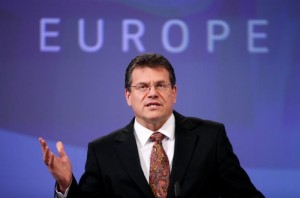 Europe may end up with more gas than it needs if the Nord Stream 2 pipeline, designed to double the amount of gas Russia pumps to Germany via the Baltic Sea, is built, the European Union’s most senior energy official said on Monday. Sefcovic said the construction of Nord Stream 2 would raise doubts also over the long-term use of the existing Yamal pipeline, which delivers mainly Russian gas to Germany and Poland. Germany tried in January to reassure Poland the Yamal route was safe. Sefcovic and other EU officials have also said they have yet to rule on whether the pipeline would run up against EU anti-trust rules.
Europe may end up with more gas than it needs if the Nord Stream 2 pipeline, designed to double the amount of gas Russia pumps to Germany via the Baltic Sea, is built, the European Union’s most senior energy official said on Monday. Sefcovic said the construction of Nord Stream 2 would raise doubts also over the long-term use of the existing Yamal pipeline, which delivers mainly Russian gas to Germany and Poland. Germany tried in January to reassure Poland the Yamal route was safe. Sefcovic and other EU officials have also said they have yet to rule on whether the pipeline would run up against EU anti-trust rules.
Read more here.
Biodiesel worse for the environment than fossil fuels, warn green campaigners
By James Crisp on Euractiv.com
 Biodiesel is touted as one way to decarbonise the EU’s transport sector. But, according to NGO Transport and Environment (T&E), using it is actually worse for the environment than traditional fossil fuels. T&E’s analysis builds on the long-delayed and controversial Globiom study, that was finally published last month. Critics have accused the European Commission of keeping the study, which was commissioned in 2013, under-wraps until the consultation period for the review of the Renewable Energy Directive (RED) was over. A consortium of three respected research institutes, including Ecofys and IIASA and e4Tech, wrote the study. But the findings were denied by Raffaello Garofalo, the secretary general of the European Biodiesel Board, an industry group, who branded the study “unreliable”.
Biodiesel is touted as one way to decarbonise the EU’s transport sector. But, according to NGO Transport and Environment (T&E), using it is actually worse for the environment than traditional fossil fuels. T&E’s analysis builds on the long-delayed and controversial Globiom study, that was finally published last month. Critics have accused the European Commission of keeping the study, which was commissioned in 2013, under-wraps until the consultation period for the review of the Renewable Energy Directive (RED) was over. A consortium of three respected research institutes, including Ecofys and IIASA and e4Tech, wrote the study. But the findings were denied by Raffaello Garofalo, the secretary general of the European Biodiesel Board, an industry group, who branded the study “unreliable”.
Read more here.







